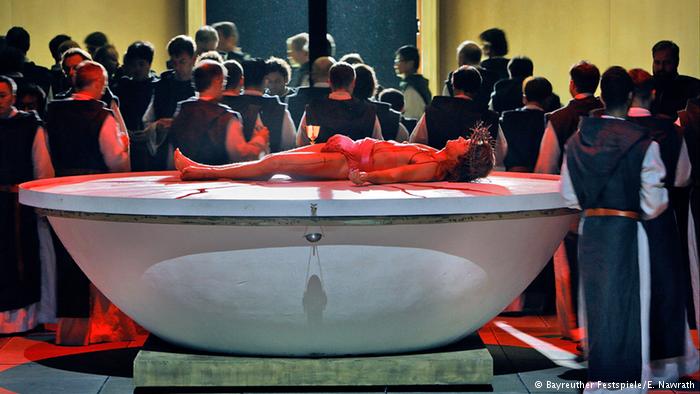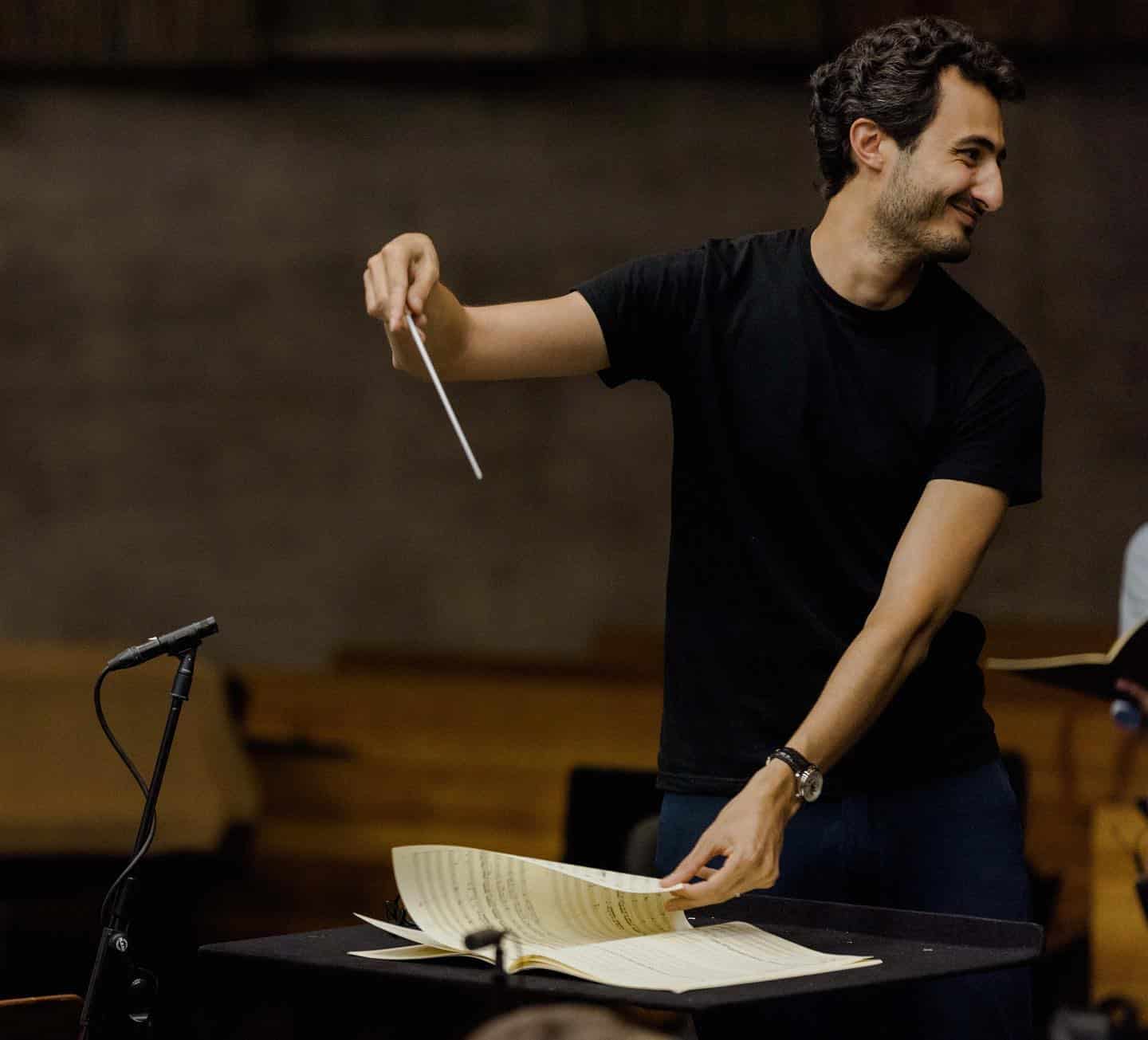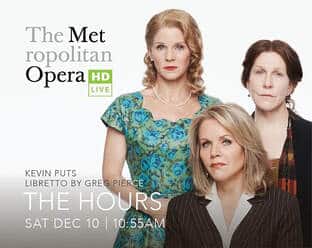Archbishop attacks ‘offensive’ Bayreuth Parsifal
UncategorizedBamberg Archbishop Ludwig Schick has launched a podium assault on Parsifal at Bayreuth, both at the present production and at Wagner’s original concept.
He said the opera was, from the outset, offensive to the Christian religion, which it sought to bury.
Read here.






That bishop is so 19th century.
Didn’t Wagner several times refer to Parsifal as his Buddhist opera? I don’t know the work at all well having only seen it once, but if it was intended as an opera based on Buddhist principles, when did Christianity take it over?
As usual, Wagner got his material from very different sources and made his own, often confused mix of it. The result is, that the works are open to very different, and often mutually exclusive interpretations. W’s interest in Bhuddism stems from his own personal longing for redemption from too emotional bonds, which got him into trouble all the time…. Hence Parsifal’s extremism in opposites, the black-and-white, which shows that redemption was, for Wagner, still not in sight.
Wagner wanted to ‘save the core of religion’, and put it into an art form: ‘Kunstreligion’. Hence the ‘offensive’ references to Christian rituals, which can only be understood as opera about religion, if you don’t take Wagner seriously, i.e. not accepting the idea of Kunstreligion. The archbishop criticizes the over-emphasis of rejection of religion in the production, and obviously feels that ‘the core of religion’ that Wagner wanted to save, had been buried as well.
After decades of puzzling at Parsifal (Bryan Magee is recommended) without really getting anywhere, all became clear a year or so back during a short talk at Covent Garden. The wonderful Sarah Lenton – no stranger to Christian theology – reassured us that the libretto is basically nonsense and not worth worrying about.
Since then I have felt liberated and enjoy performances far more.
Talking about redemption….
But certainly the plot is much more than ‘nonsense’, obviously the lady was quite ignorant – which in itself is liberating for some people (‘Ignorance is a precious flower, touch it and the bloom is gone’).
The opera can be best experienced as a meditation about inner development, from immaturity through compassion to englightenment, in symbolic form, where one of the lessons is to keep large groups of sexy girls at bay and refrain from seductrices who invoke your mother.
The whole nonsense in a nutshell: The Graal knights are a bunch of drug addicts (believers) who cannot drink enough from the chalice (their religion) that gives them total satisfaction and that their current boss can no longer fill. Parsifal (Wagner) provides the stuff (art instead of religion), and in the conclusion everybody is high but the problem is that they are also doomed (more drugs and no sex = no procreation = extinction).
Yes, the libretto is basically nonsense, but it is also a desecration of the Eucharistic liturgy. Not worth worrying about? Yes, unless you are Roman Catholic.
The more I think about it, the more I endorse Stravinsky’s critique of Wagner.
Stravinsky heard the regular Wagner performances of his time which, according to the stories and the recordings, were mostly ponderous, pretentious, and too slow, and the singers often barking instead of singing – for ‘dramatic effect’. We know now that Wagner preferred vivid tempi and melodious singing. Probably Stravinsky would have appreciated most contemporary playing:
https://www.youtube.com/watch?v=v7cAd9MXRMg
By the end of his life, Stravinsky came round to better understand Wagner and appreciate this music so completely different from his own.
Thank you for the comment and the link (I will see the whole video this evening). And yes, you’re right, it was a “young” Igor Stravinsky who criticized Wagner’s esthetics in his Autobiography and in the Poetics of Music, everything written before 1940. Except for a very diplomatic letter to Wolfgang Wagner about Die Meistersinger printed in the program notes of a Bayreuth Festival in the 1960’s, I don’t remember any more recent analysis of Wagnerian drama-in-music versus “real opera” by Stravinsky, but he liked very much Alban Berg’s Lulu as revived in the 1960’s so in his later years he was no longer quite negative about drama-in-music.
Isn’t Pope Frank a fan of Parsifal?
Indeed this weekend while on a visit to Poland Pope Francis mentioned to a group of young people chosen to have lunch with him that his favorite composer is Richard Wagner without specifying which operas he preferred.
Well, DUH, Archibishop, maybe someone should sit down and explain to you how Parsifal never was a “Christian” opera.
When Conried produced Parsifal at the Met in 1903, the opera was denounced from the pulpits. It helped the box office considerably.
Fatwa’s are often the best, free, publicity. Some ‘avantgarde’ premières in the last century enjoyed organised scandals, that is: organised by the composer himself and his entourage.
I am not so sure that Schick objects to Wagner’s Parsifal.
The opening of the post at the link quotes him saying:
“Wagner ist ein Suchender, er suchte über die herkömmlichen Religionen hinaus, ohne sie im Sarg zu beerdigen”, sagt Schick am Freitag.
In English: “Wagner is a seeker, he sought to go beyond traditional religions, without burying them in a coffin.”
Shick’s beef is with Laufenberg’s production.
Absolutely – the full opening passage makes Schick’s actual meaning (and the gist of the article) clearer:
“The Bamberg Archbishop Ludwig Schick has criticised the ‘Parsifal’ production at the Bayreuth Festival as being not in keeping with the composer’s intentions. ‘Wagner was a seeker, he sought to go beyond traditional religions, without burying them in a coffin,’ Shick said on Friday, adding that ‘it would have been appropriate to emphasise this.'”
Later in the article, Schick adds that, “It is also [for a Christian] offensive because the Laufenberg production emphasises the criticism of religion more strongly than Wagner does, and in the case of Christianity, too, this strong criticism is unjustifiable.”
The article closes by saying that Laufenberg’s humanistic interpretation of “Parsifal” had elicited enthusiastic cheers from the Bayreuth audience.
Schick should stick to his own “shtick” and not worry about Wagner. Doesn’t anyone listen to the beautiful music anymore? Enjoy the Drama for what it is – Magical Theatre